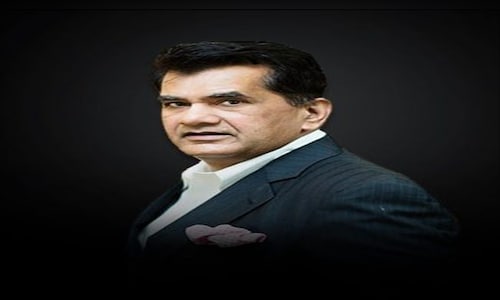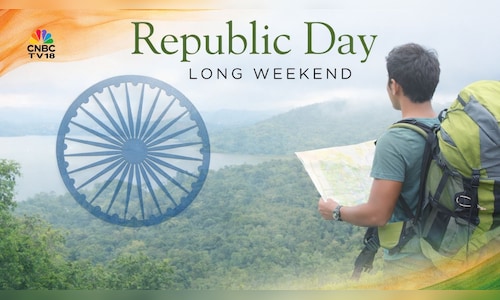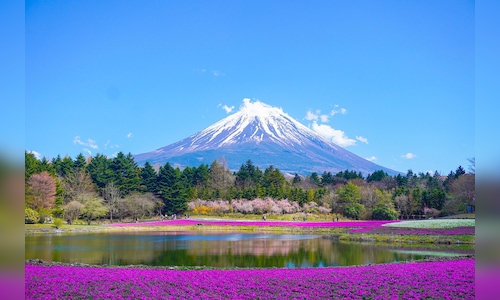Speaking to CNBC-TV18’s Shereen Bhan, Kant said travel and tourism can “more than compensate” for the losses from such trade barriers while also creating millions of jobs. “This is a once-in-a-generation opportunity to bring in radical reforms across sectors, make India more competitive, and use tourism as a growth engine,” he said, adding that the industry could create 63 million jobs, according to the World Travel and Tourism Council.
Kant urged the government to allocate at least ₹20,000 crore to promote India in global markets through a new ‘Incredible India’ campaign. “A large country like India having a tourism budget of just ₹3 crore is absurd,” he remarked. He called for targeted marketing in the US, Europe, and the Far East to attract high-value, long-stay visitors seeking cultural and experiential travel. Kant stressed that a stronger tourism sector could help offset the economic hit from the proposed US tariffs by boosting foreign exchange earnings and job creation.
Alongside marketing, Kant pushed for GST rationalisation to two slabs, urban rejuvenation, and improved cleanliness and infrastructure in cities. “Tourism is not just about destinations, it’s about making cities competitive, safe, and clean,” he noted.
He also advocated greater private sector participation in tourism infrastructure, saying state-run hotels and facilities should be handed over to private operators for better management.
“Every crisis is an opportunity. If we use this moment to push big-ticket reforms and drive international tourism, we can turn short-term trade challenges into long-term economic gains,” Kant said.
Below is the excerpt of the conversation.
Q: While it doesn’t directly impact India’s tourism sector, there is a mood, there is confidence — all of those things are important contributors to the consumptive capacity and power of an economy. As you look at the volatility in the world today and the geopolitical dynamics that are playing out, we are talking about ‘Incredible India’ from a tourism perspective. How incredible is India from a global viewpoint when we talk about tourism today?
Kant: The world is in a state of flux. India is being tested. But every crisis is also an opportunity, and we should not let this opportunity slip. We should really use this to galvanise ourselves and bring in radical reforms. I think it’s a once-in-a-generation opportunity to make ourselves easy and simple to deal with, to implement reforms in all sectors of our economy, make ourselves competitive, and make India a key driver of global growth. This, to my mind, is a massive opportunity for reforms.
We should use this opportunity to make our GST very simple — just two slabs. We should simplify personal tax. We should remove a lot of quality control orders that have actually impacted trade liberalisation. We should reduce taxes on inputs and components so that we become an integral part of global value chains. And we should clean up our cities so that we become a great travel and tourism destination.
We should drive tourism simply because there is no other sector to beat Trumpian tariffs than travel and tourism. If India wants to compensate for the 50% tariff expected to be imposed after 20 days, growing tourism could more than make up for it. This is a sector that can truly drive India’s growth story in the coming years — and not merely growth, but also jobs. Growth with jobs will come from travel and tourism.
Q: Well, the big headline there from Amitabh Kant is that tourism is the answer to offset the Trumpian tariffs, as he called them. But in 20 days, if nothing changes, India is going to be hit with a 50% tariff. You talked about competitiveness — where does that leave India’s competitiveness, and what can be done to offset the impact of that tariff? I understand trade diversification, we are also talking to the EU and other countries. In the list of priorities, what should we focus on to ensure we don’t lose competitiveness if we are hit with those tariffs?
Kant: First and foremost, what Trump has done is bring absolute unpredictability and inconsistency to trade policies across the world. One day he imposed 25% tariffs on Canada; the next day, 35%. He put tariff on China, then there’s a 90-day pause. For a private sector entrepreneur, it’s hard to know where to export from. For a textile exporter, should he export from Cambodia, Vietnam, Hong Kong, or India? It’s difficult to work out tariff rates and where to invest.
None of us knows exactly what will happen 20 days later. Some sectors like pharma and electronics may be exempted, but textiles, seafood, etc., are likely to be hit. I am hopeful that India will be able to arrive at a win-win situation with the United States at the end of 20 days. These are strong arm negotiating tactics, as seen with many other countries. The only countries that have not buckled under pressure are China, Brazil, and India.
One thing I am clear about is that India should not succumb or compromise on its strategic autonomy. If you compromise now, you’ll keep succumbing. You may lose this battle, but you must win the long-term war. It has taken 25 years to build our relationship with the United States. It’s important to remember that the US accounts for 26% of global GDP and 48% of market capitalisation, with 4% of the market share. There has been bipartisan support for India for two and a half decades. A short-term disruption from Trumpian policy is possible, but we must focus on winning the war in the long run.
Q: Speaking of winning the war, I want to go back to your point about this being an opportunity for India to go forward with big-ticket reforms. My first question is: why do we wait for a crisis to do big-ticket reforms? Everyone says this is like a 1991 moment. Is it a bureaucracy problem, a political will problem, or something else? And second, you talked about a two-rate GST structure — the hotel industry would welcome that. But is it practical?
Kant: It’s not that India hasn’t carried out reforms. In the last decade we were among the fragile five economies and have moved to the top five. We are now the fourth-largest economy and will probably be the third soon. We introduced GST, IBC, RERA, improved ease of doing business, pushed for digitisation, greening of the economy, and large-scale infrastructure creation. We have provided housing, water, and electricity.
But to manage a country of 1.4 billion people, bigger than 24 European countries combined, pushing for hard reforms often needs a crisis. A crisis galvanises everyone. This is a once-in-a-generation opportunity to become the most competitive economy in the world. Every crisis is an opportunity — use it.
Q: You’ve already mentioned GST rate rationalisation as one big-ticket reform. What would the other top four items be?
Kant: Provide ₹20,000 crore to the tourism industry to promote and penetrate global markets. Nothing less than ₹20,000 crore. This sector can more than compensate for Trumpian tariffs. Launch a massive brand campaign to attract tourists worldwide.
The budget also announced ₹1 lakh crore for urban revival — we should push for that, because clean cities are essential for tourism. But the minimum is ₹20,000 crore for tourism to run the best ‘Incredible India’ campaign globally, getting the rich and famous to visit India. Attack Trump with travel and tourism.
Q: Why haven’t we seen a new ‘Incredible India’ campaign so far?
Kant: I can’t answer for all the problems, but at this moment, we must galvanise ourselves. The World Travel and Tourism Council says the industry can create 63 million jobs in India. Which other sector can create that many jobs? Politicians want growth with jobs — this is the sector that can deliver.
Q: The industry laments that while it has been given “industry” status, execution is lacking. How do we address that?
Kant: The tourism industry must meet every chief minister and the Prime Minister, explaining that for a ₹20,000 crore spend, they can make up for losses in other sectors due to the US challenge. Led by Mr. Puneet Chhatwal as FAITH Chairman, they should present a five-page note to the PM outlining the deliverables.
Domestic tourism did well during COVID, but it won’t sustain growth long term. We now have the airlines and airports to support international tourism. This is the time to go global in a big way, using domestic tourism as a springboard.
Watch accompanying video for entire conversation.






